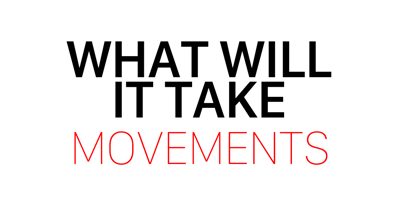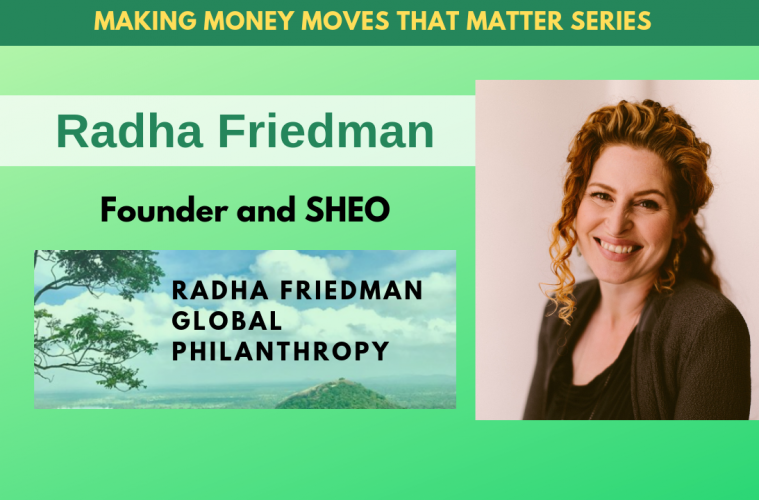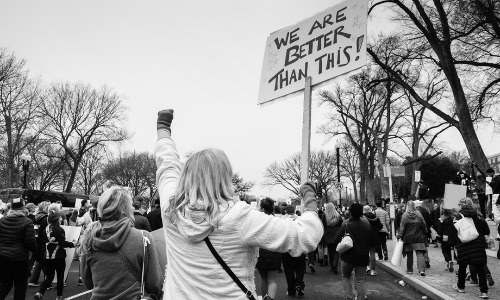If you care about the women’s wealth gap and building stronger economies, you can’t ignore women’s property rights.
For me, this truth hit me squarely in the face when I began working in the field of micro-credit in India two decades ago. At the time, doe-eyed and ready to change the world, I thought micro-credit was the panacea to poverty and inequality. Simply provide capital to women, especially the hardest to reach in remote areas, and you’ll “solve” poverty! Classic white savior blunder. It didn’t take long before these women schooled me. Most were day laborers, working on someone else’s land, making less than a dollar a day. Where, exactly, would these women be starting these mythical small businesses with their micro-loans?
For an intervention like microcredit to be effective, I saw that a foundational layer needed to be in place to undergird it. These women needed more than access to financial services; they first needed secure land rights.
We sometimes forget that most poverty in the world is rural, where land is your single most valuable asset. It’s your shelter and home, your source of food, income, and livelihood. It’s also your sense of place in a community. But rights to land are not equitably distributed, especially for women.
It seems counterintuitive, because anywhere you travel in the world, you see a universal truth: women feed the world. Women tend the gardens and fields, collect the firewood, and cook for their families. There are huge ecosystems that are dependent (children, elders, etc.) on women playing these essential roles in the informal economy. Yet women own less than 15% of the land in the world. (Estimates differ depending on location, and the gender data gap makes collecting accurate data less than ideal.)
Although most nations agree that women’s economic participation is critical to growth and prosperity (we are half the world, after all), nearly 90% of nations still have laws or customs that impede women’s access and rights to land. In many countries, laws explicitly render women inferior when it comes to land ownership. Often, women can only access land through male relatives, or through the commons—community held land, as referenced by Greg Watson and Susan Witt in their proposal for a black commons.
And often, women are themselves considered as property. This leaves women and girls vulnerable to gender-based violence, without the ability to escape an unsafe situation, let alone participate fully in local economies and markets.
It’s time we break down those barriers.
UNLOCKING WOMEN’S POTENTIAL
Perhaps the reason we don’t see more investment in this area is that people are not aware of the base of evidence showing that strengthening women’s land rights provides a ripple effect of economic growth that leads to better health, education, etc.
Research shows:
- Improved nutrition and health. In Nepal, women with secure land rights grew more on their land and their children were 33% less likely to be malnourished.
- Higher Income. In Tanzania, women with secure land rights earn up to four times more income and are three times more likely to have savings.
- Improved Safety and Reduced Violence. Women with secure land rights are eight times less likely to experience domestic violence; researchers in India found that only 7% of women with secure land rights experienced domestic violence, as opposed to 49% of women without.
- Empowerment & Decision-Making. In Nepal, women with secure land rights were twice as likely to have the final say on a household decision.
- Women’s Political Participation and Education. In Kenya, women with secure land rights reported greater confidence in understanding of the customary justice system, which led to significant numbers of women being elected as elders for the first time in the memory of the community. This, in turn, brought the number of girls entering secondary school equal to the number of boys, where previously, girls were outnumbered by boys three to one.
WHAT WILL IT TAKE?
So what if we flip the narrative? What if the barriers that perpetuate inequality were removed, and women and girls had the same opportunity as men and boys to own land and decide how it was used?
Yes, land will always be a contentious issue (see colonization, wars, your local city council meetings, etc…), but if we want to level the playing field, we can’t ignore this most basic asset.
There are a number of players—nonprofits, government, and multilaterals alike—working to ensure that women have access and rights to land. But they need greater funding. Let’s face it: secure land rights isn’t exactly the sexiest dinner table topic. But as we look towards gender smart inflection points for our philanthropy and investments, let’s not leave women’s land rights off the table.
For a good primer on women’s land rights, see https://stand4herland.org, a campaign supported by Landesa, Habitat for Humanity, the Hairou Commission, the World Bank, and the Global Land Tool Network (GLTN). For more information on Radha Friedman Global Philanthropy, visit www.radhafriedman.com.
Radha Friedman is a philanthropy adviser with a gender lens. She is the Founder & SHEO of Radha Friedman Global Philanthropy. Her passion for gender equality has led her around the world, working with organizations and foundations across 60 countries. Radha has helped build equity for womxn and girls through microcredit, land and property rights, and strategic philanthropy to invest in women-led projects. She helped build the largest microfinance institution in India, co-founded the Landesa Center for Women’s Land Rights, and consulted to the Bill & Melinda Gates Foundation to advance women’s economic empowerment. Now, Radha uses her two decades of on-the-ground experience to encourage investing in womxn and girls, and to help womxn and non-binary clients align their values with their investments.



